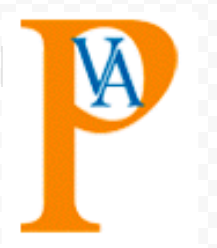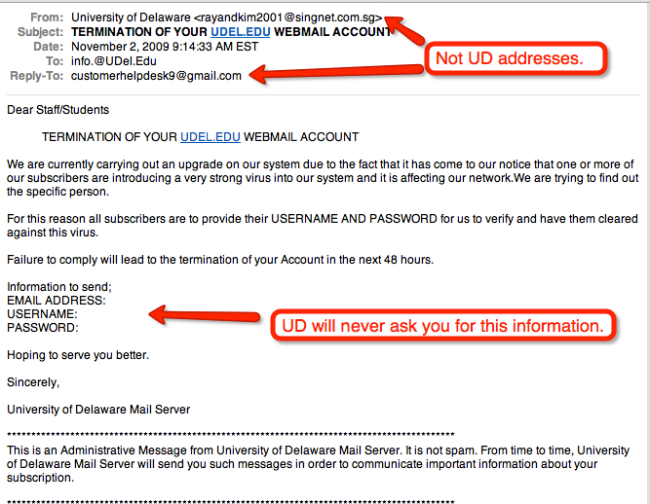Protecting Yourself from Identity Theft
This week’s EdTech post focuses on the very real threat of identity theft online. Once considered a joke, identity theft is now a common issue in Washington, D.C. and something to protect yourself from today. Almost monthly, a new story breaks about hundreds of thousands of passwords, personal information, and credit card numbers being hacked and extracted from larger corporations. The latest is here from philly.com.
But don’t fret! There are things that can be done to lower your risk at identity theft:
1. Control Your Clicks – Identify Phishing Attempts
Especially in email, don’t send valuable information over the interwebs. A way of recognizing a phishing attempt is what they’re asking for in an email. Below is an example from the University of Delaware. It shows a slightly altered email address and a request for information that the University would have never asked for.
2. Pop-Ups, Just Don’t.
First of all, you shouldn’t be receiving many pop-ups. If you are, it’s time to update your anti-virus software, which we’ll get to in a minute. But simply don’t click on pop-ups.
3. Get your Anti-Virus Software Up to Date.
If you’ve already installed an antivirus/malware system, update it regularly. If your computer is unprotected, there are plenty of free Antivirus software out there. Check out this link to read up on 2014’s best programs.
4. Use Strong Secure Passwords
Not only strong and secure, but varied. Don’t use the same password for everything on your computer or each website you have an account on. If you have the same simple password for everything, once a hacker has one password, they have them all.
5. Skepticism is Better than Optimism Online.
If it looks fishy it probably is fishy.
6. Read Up.
There are always new stories breaking about full-scale phishing scams and being up to date on them could save you time, energy and money. There are also new ways to protect yourself that evolve on a daily basis. Here is a link to the official government page on “Learning about Internet Fraud.”




Recent Comments